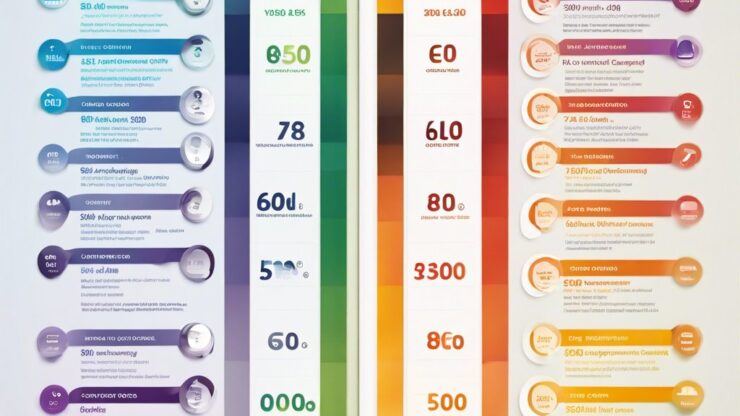Unlocking the Secrets of Your Credit Score
Your credit score is more than just a number; it can significantly impact your financial future. Whether you’re applying for a mortgage, car loan, or even a credit card, understanding where you stand on the credit score spectrum is crucial. Let’s delve into the different ranges of credit scores and what they mean for your financial health.
Decoding Credit Score Ranges
Credit scores typically range from 300 to 850, with different ranges indicating various levels of creditworthiness. Here’s how these ranges can impact your borrowing power and the terms you’ll receive:
- 300 – 579: Poor – A score in this range indicates a high risk for lenders. If you find yourself here, it might be difficult to secure loans, and if you do, expect higher interest rates.
- 580 – 669: Fair – This range is considered subprime. You may qualify for some loans, but they often come with unfavorable terms. Working to improve your score can open up better options.
- 670 – 739: Good – Scores in this range show that you are a reliable borrower. You’ll likely qualify for loans with decent interest rates and terms.
- 740 – 799: Very Good – Borrowers in this category are viewed favorably by lenders. You can expect better rates and terms on loans.
- 800 – 850: Excellent – A score above 800 is considered excellent, making you a prime candidate for the best interest rates and terms available.
Taking Action: How to Improve Your Credit Score
If your score falls into the lower ranges, don’t despair. There are proactive steps you can take to improve your credit score and enhance your financial standing:
- Check Your Credit Report: Regularly review your credit report for errors and dispute any inaccuracies.
- Pay Your Bills on Time: Timely payments are one of the most significant factors affecting your credit score.
- Reduce Your Debt: Lowering your credit utilization ratio can positively impact your score.
- Avoid Opening New Accounts Frequently: Each new application can temporarily lower your score.
Disclaimer
This article has been created or edited with the support of artificial intelligence and is for informational purposes only. The information provided should not be considered investment advice. Please seek the support of a professional advisor before making any investment decisions.






